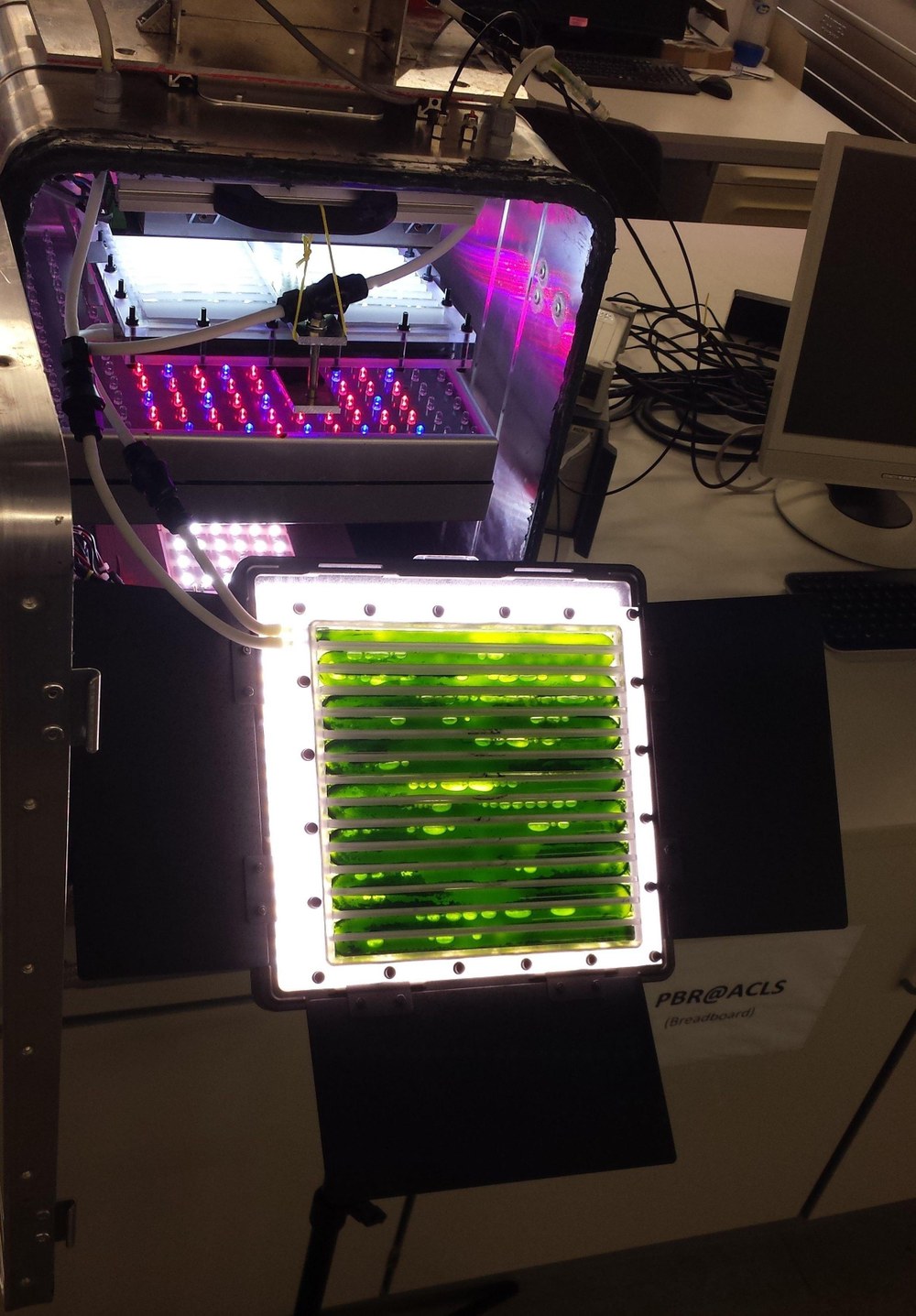Brochure: horizons mission (2018)
horizons – a journey of discovery for science an society

IRS Stuttgart.
For astronauts to survive in space, the resources necessary for life have to be provided. Conventional life support systems use physical and chemical processes for this purpose, and are dependent on regular resupply. However, due to the fact that astronauts cannot carry unlimited supplies during long-term exploration missions, the resource cycle must be closed.
In summer 2018, the 'life support rack' (also known as the ACLS, Advanced Closed-Loop System), a physicochemical air recycling plant constructed by AIRBUS Defence and Space, will be brought to the International Space Station ISS. However, ACLS will not convert all of the carbon dioxide extracted from the cabin air into oxygen. The photobioreactor (PBR) experiment will be connected to the ACLS. Some of the excess carbon dioxide will be made available to microalgae for photosynthesis, which generates oxygen. This increases the efficiency of the overall system while generating edible biomass. The experiment is expected to begin in spring 2019 and will run for up to six months, thereby also investigating the long-term stability and performance of microalgae cultivation in space.
The PBR will demonstrate a hybrid life support system for the first time. This is an important milestone in closing resource cycles. This approach is beneficial to space as a step in reducing resupply requirements, thus enabling future exploration missions. On Earth, it will also make contributions to air treatment in sealed environments (for example, submarines), carbon dioxide reduction using microalgae, and food production in poor, sunny regions.
